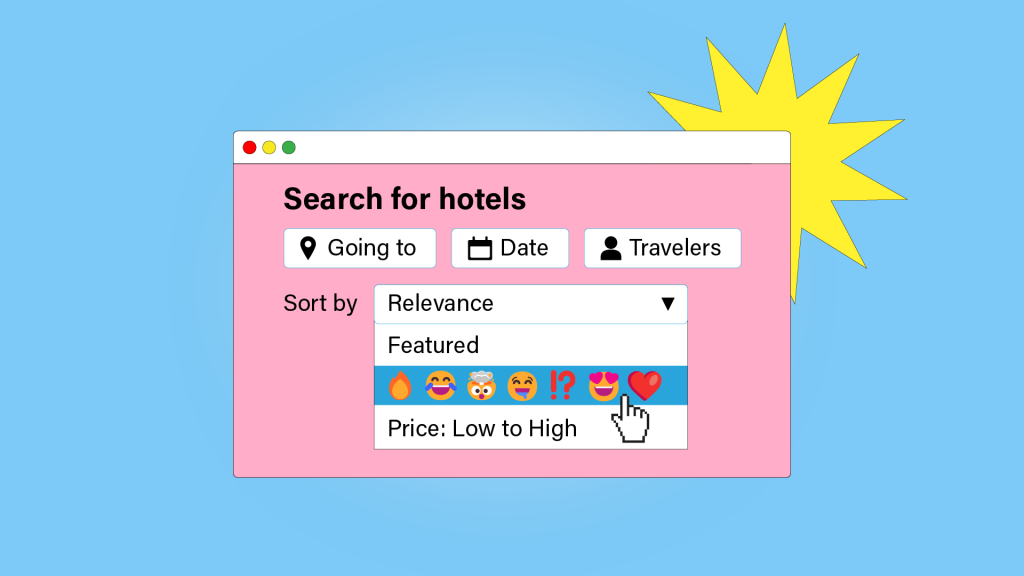Hotels Make Emotion the New Brand Standard

Skift Take
Appealing to people's emotions is becoming a more effective way for hotel groups to woo travelers because guest needs are evolving in ways that undercut the traditional branding recipe. Many hotel executives are fine-tuning what their brands stand for and how they communicate that message to guests as they try to grab market share.
For years, chains have upheld brand standards, namely, the rules that property owners agree to live by when they enter franchise or management agreements with hotel groups. Brand standards have specified everything from which signs should be out front, what types of thread count are okay for the bedsheets, and often the price ranges that the hotels should charge. The purpose of brand standards has been to create consistency, regardless of who may own properties. The contrast with the relative unpredictability of independent hotels has helped brands grow.
Yet today, fewer guests rely on traditional brand messaging as the decisive reason to choose a hotel. In the past, travelers had less access to information, so the sign out front of a property carried more weight by conveying a promise of consistent quality. But now, every smartphone can bring up a mix of reviews and social recommendations specific to an individual property. Perhaps there's a swimming pool, as is required by the brand standards, but it's out of service at a particular location. Or maybe reviews fault the local staff for lack of hospitality. The spread of digital information has undermined the selling power of national brand pledges to deliver things like consistent quality pillows, carpeting, and fresh waffles for breakfast.
“Engaging with emotion is the next frontier in hospitality branding, especially at the upper end of the business,” said Chekitan Dev, the Singapore Tourism Distinguished Professor at Cornell University’s Nolan School of Hotel Administration and author of Hospitality Branding.
A Widening Hospitality Gap
Emotional appeals by hospitality brands are also becoming more important to hotel branding, partly in response to societal change. Many people have become lonelier in their day-to-day lives. In the U.S., the amount of time the average American spends with friends has dropped since 2013, when it was six-and-a half hours a week, to only four hours a week in 2019, and then further down to only two hours and 45 minutes a week in the pandemic year of 2021, according to the Census Bureau. The percentage of U.S. households with a single resident has risen to 29 percent, up from only 13 percent in 1960, the Census Bureau said.
While the U.S. is only one country, data elsewhere points to a trend in many countries of digital infotainment and other social dynamics driving increased isolation among individuals. This trend matters to hotels because when people have reduced friendly contact in their daily lives, hotels have an opportunity to fill a hospitality gap. Hotels that deliver an unquestioning and welcoming embrace can resonate more with people who increasingly feel alienated or "atomized."
Learning From Alternative Accommodations
The rising popularity of short-term rental accommodation, popularized by brands like Airbnb, has partly been driven by customers demanding an emotional connection to their stays. Whether a guest stays in someone else's home or in a residence that's been professionally decorated with quirky, locally relevant decor, many travelers find that alternative accommodations create an emotional spark that's harder to find at traditional big box hotels.
The rise of alternative accommodations has revealed consumer preferences to be more flexible than previously assumed, too. The founders of UK-based independent hotel company Room2 have responded to that greater flexibility by loosening up their rules for interacting with guests at their apartment hotels, which they call "hometels."
"We don't have, say, a 'brand look' of consistent furniture," said co-founder Rob Godwin. "Instead, we have a 'brand feel' that's about creating an authentic design that's relevant to a property's history or location."
What's consistent at the handful of Room2 locations in the UK is a feeling of informality. Pets are allowed. There's no reception desk, so staff walk over and personally greet guests to hand them their keys if they haven't selected keyless check-in. Requesting a check-out as late as 2 p.m. is a free option.
Communicating emotional messages requires nontraditional campaigns that show more than just hotel rooms and lobbies.
In late 2021, the century-old luxury hotel brand Fairmont launched a brand campaign called Experience the Grandest of Feelings that aimed to update its messaging for the cultural moment.
"Luxury travel has moved in its focus from the past, when it was about tactile details and status, to people today wanting to make a meaningful choice about how they spend their time in a way that connects with their values, like exploration and evoking a sense of wonder," said Mansi Vagt, global brand leader and vice president, Fairmont.
Appeal to All Senses
Hotels often find that emotional appeals can be forged by activating a guest's senses.
A case in point is Hotel Vera, which opened in 2022 in the Ballarat neighborhood of Victoria, Australia. This boutique hotel plans to pump a signature aroma into its lobby to tantalize guests' olfactory senses, while working fireplaces will, when seasonally appropriate, cast off warmth that travelers can sense.
Recent research shows that while informational content helps sell economy products, emotional content is more important when selling upscale products.
"Engaging effectively with emotion, which means engaging all five senses, each sensory stimulation created uniquely for the brand (think chocolate chip cookies at Doubletree, or white tea scent at Westin), thoughtfully curated to seamlessly blend into an overall brand feel, on brand all the time, is the opportunity facing those who want to successfully differentiate their brand and earn a premium in a hypercompetitive marketplace," said Dev at Cornell.
Training in Emotional IQ
For all types of hotels, the challenge will remain in 2023 and beyond on how to scale any new "emotional" standard and keep an authentic feeling. Training of labor will be a key tool.
Brands may find it necessary to train their staff to enjoy an emotional connection to the brand first so that these employees can communicate that emotion to guests through the service they provide.
Marriott's Edition brand has a training program where, roughly 10 days before a property opens, they spend several hours trying to instill a bond between the new hires and the brand.
"We want to grab them by their hearts out of the gate," said Josh Fluhr, who earlier this year became Edition’s senior vice president and global managing director. "If we haven't done that, we haven't done our job. And then when we open, that's how we want them to embrace our guests."
At Jumeirah, training is also key to creating an emotional spark.
"If you have a luxury hotel with, say, 300 rooms, there are maybe about 6,000 times a day at the property when a guest and an employee have an interaction," said Ellen Dubois Du Bellay, chief human resources officer at Jumeirah. "About 70 percent of those interactions are unsupervised, such as people passing in a corridor or preparing a meal. So you have to instill in your employees this sense of responsibility because what you do makes a huge difference to the guest's experience. It's a moment of truth for the brand."




